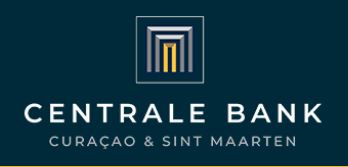Curacao and Saint Martin’s monetary authority
Curacao and Saint Martin’s monetary authority is the Central Bank of Curacao and Sint Maarten (CBCS). It serves as the central bank, implementing monetary policy, issuing currency, and supervising financial institutions in both jurisdictions.
Following the dissolution of the Netherlands Antilles in 2010, the CBCS was established. The predecessor of the bank, the Bank of the Netherlands Antilles, had been in operation since 1828.
Review of the CBCS
The CBCS maintains the stability and integrity of the financial systems in Curaçao and Sint Maarten. It formulates and implements monetary policy to promote price stability, maintain the external value of the currency, and support the long-term economic growth of both nations.
Services Provided by CBCS
The CBCS is responsible for establishing and implementing monetary policy measures to control inflation and promote economic stability. This includes interest rate management, open market operations, and money supply regulation. CBCS is the sole issuer of the Netherlands Antillean guilder (ANG), which is the official currency of Curacao and Sint Maarten. It manages the circulation and integrity of banknotes and coins and ensures a sufficient supply of currency to meet the needs of the economy.
CBCS Supervision
Within its jurisdiction, the CBCS supervises and regulates banks and other financial institutions. It ensures compliance with prudential regulations, monitors the financial health and stability of supervised institutions, and conducts on-site inspections. The CBCS supervises a variety of financial institutions, such as commercial banks, credit unions, trust offices, and money transfer businesses. These institutions are subject to regular oversight to ensure compliance with financial regulations and protect depositors’ and stakeholders’ interests.
The Central Bank of Curacao and Sint Maarten (CBCS) supervises a variety of financial institutions within its jurisdiction. While I do not have access to an up-to-date list of supervised institutions, I can provide an overview of the types of institutions that the CBCS typically oversees.
Commercial Banks: The CBCS supervises commercial banks operating in Curacao and St. Maarten. These banks offer an extensive array of financial services, such as deposits, loans, and other banking products.
Here is a list of some commercial banks that have operations in Curaçao and Sint Maarten:
Curaçao:
- Maduro & Curiel’s Bank (MCB)
- Banco di Caribe
- Amicorp Bank
- RBC Royal Bank
- Orco Bank
- Girobank
- Republic Bank
- CIBC FirstCaribbean International Bank
- Aruba Bank
- Vidanova Bank
Sint Maarten:
- Windward Islands Bank (WIB)
- RBC Royal Bank
- Banco di Caribe
- Republic Bank
- CIBC FirstCaribbean International Bank
- Maduro & Curiel’s Bank (MCB)
- PSB Bank
- Sint Maarten Development Bank
Credit Unions: The CBCS may also supervise credit unions, which are financial cooperatives owned by their members. Credit unions primarily provide savings accounts, loans, and other financial services to meet the financial needs of their members.
Trust offices: The CBCS regulates trust offices that offer trust and fiduciary services, such as company formation, asset management, and estate planning. These institutions play a crucial role in the management and protection of client assets.
Here is a list of some trust offices operating in Curaçao and Sint Maarten:
Curaçao:
- Intertrust Curaçao
- Amicorp Curaçao
- Citco Curaçao
- TMF Curaçao
- Vistra Curaçao
- Trident Trust Curaçao
- ATC Curaçao
- Curaçao International Trust Company (CITCO)
- BDO Curaçao Trust & Management
- SGG Curaçao
Sint Maarten:
- Vistra Sint Maarten
- ATC Sint Maarten
- TMF Sint Maarten
- Deloitte Sint Maarten
- SGG Sint Maarten
- Trident Trust Sint Maarten
Money Transfer Companies: Also known as remittance service providers, money transfer companies facilitate the transfer of funds between individuals and countries. In order to ensure compliance with anti-money laundering (AML) and know-your-customer (KYC) regulations, the CBCS may oversee these businesses.









